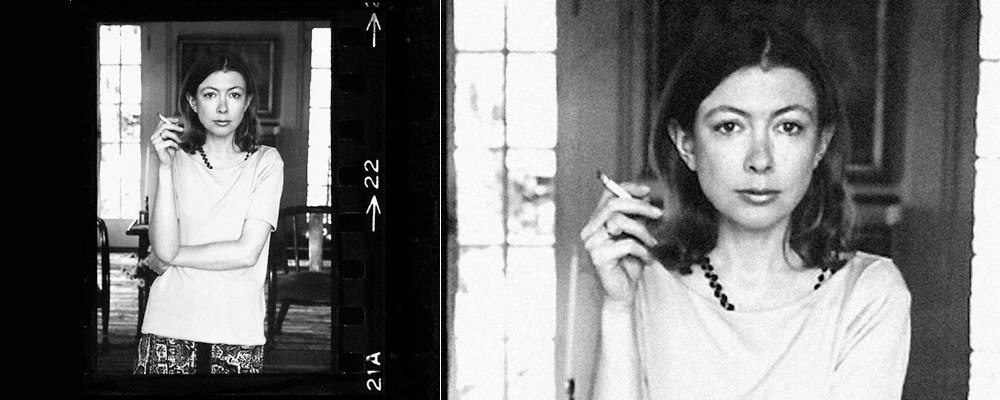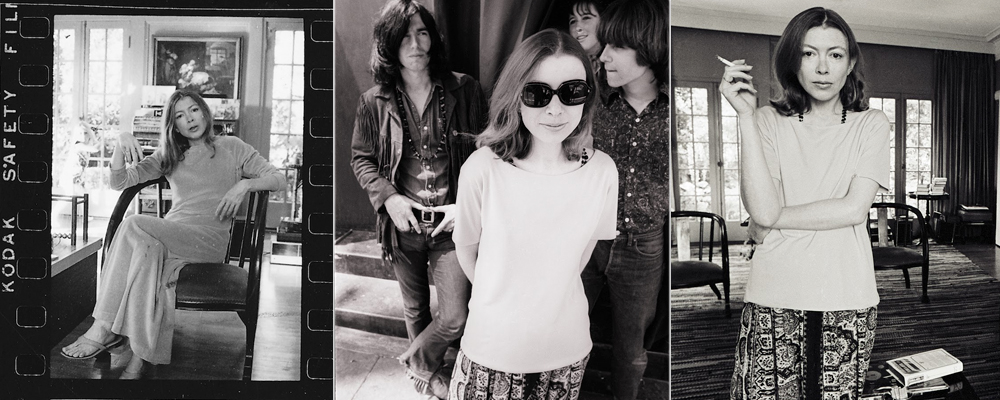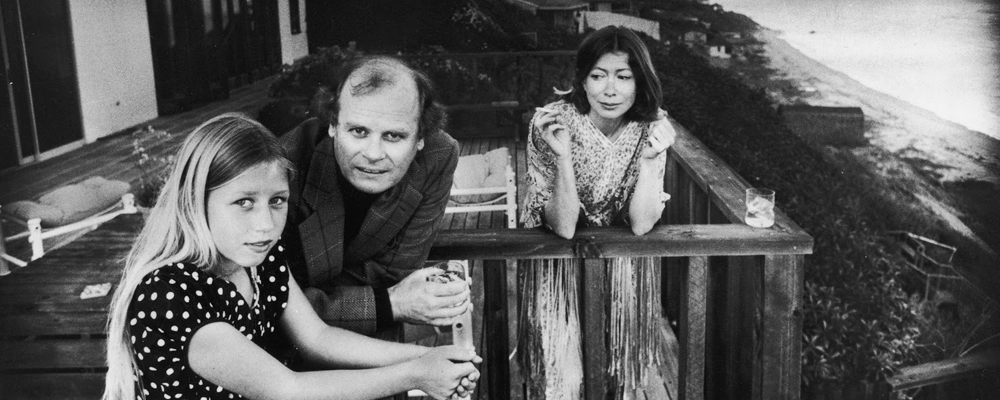‘Joan Didion: The Center Will Not Hold’ Is a Fascinating Portrait of a Great Writer
Alci Rengifo
Every age has its chroniclers, and their lives are as tortured and wide as the eras they capture. “Joan Didion: The Center Will Not Hold” is a fascinating chronicle of one of the seminal American writers of the last century. Journalist, screenwriter, essayist extraordinaire, novelist of crisp prose with that memorable, cigarette-holding pose, Didion was one of the defining figures of the literary generation that came of age in the tumult of the 1960s. This new Netflix documentary is directed by her nephew, the actor Griffin Dunne, as a kind of scrapbook journey through Didion’s life and work. Because Dunne obviously admires his aunt- and because Didion herself is still alive and very much a participant- the documentary plays like a set of recollections and is never iconoclastic (although it has moments of raw honesty). But it is an engaging experience, capturing Didion as both an individual and as a writer whose pen served as a witness to a nation’s radical evolutions and at times darkest heart.
Dunne’s approach is chronological. With lively mannerisms and eyes escaping into the corridors of memory, Didion recounts growing up in California and receiving her first notebook from her mother. It was in the pages of that notebook that Didion began her first literary flights by composing short stories. After graduating from Berkeley she lands a job at Vogue where she first experiences the rigors and talent-fueling rhythms of the journalistic life. She meets and falls in love with writer John Gregory Dunne and the two embark on a lifetime of swinging prose around, setting it on paper and moving to 1960s San Francisco where they bare witness to the darker side of flower power. Her first collection of reporting and essays, “Slouching Towards Bethlehem,” grants her immediate recognition and praise.
It is in the sections dealing with the 1960s that Didion’s identity as a writer truly takes shape. Dunne lets her essays and prose say it all as we hear her elegant, direct passages describe the decadent vapidity of rock star life, the growing sense of the potential for sporadic, senseless violence in the country (still relevant today), and a harrowing account of watching a 5-year-old who has taken acid. “It was gold,” Didion confesses when discussing what makes potent material. She gleefully recounts her love for The Doors and a desire to write about Jim Morrison. The Manson Murders are memorably evoked by Didion in a piece as the moment the 60s died- she then describes cooking dinner for Manson Family member Linda Kasabian for an interview. These anecdotes are shared with such liveliness and sense of experience that Didion makes you realize why writing is hard work but full of such breadth and intensity.
The documentary almost seems to serve as a history of modern America through the eyes of one writer who was always tuned into the flow of the times. Didion travels to El Salvador in the 1980s, writing about a civil war as defining (now forgotten) in the Reagan era as Syria is today. Dunne is wise to focus on the prose because it is what helps us see the world as Didion sees it- especially when she writes about politics and describes Bush era Vice President Dick Cheney as a villain who makes lemonade, spills it and expect others to clean it up. This is one of the most biting metaphors for the Iraq War written by a modern author.
Yet the documentary also has many moments of grace and intimacy. A key angle is Didion’s marriage to John Gregory Dunne, which comes across as a real partnership based on shared talent and a profound mutual respect. They simply really liked each other and tolerated their faults while finding comfort in their pluses. Their life becomes an adventure with writing as its core. They write screenplays together, edit each other’s work and hang out with quite the cast of characters. Harrison Ford appears on camera to discuss his pre-icon days as a carpenter working on the couple’s Malibu home. Yet paradise cannot last forever and the documentary’s third and final section is a harrowing chronicle of Dunne’s sudden death in 2003. Here Didion channeled her pain into penetrating prose with her classic “The Year of Magical Thinking.” Merely two years later the couple’s adopted daughter Quintana also passes away. These memories are recollected with moments in which the camera captures the lingering, haunting force of those years in her increasingly fragile face. A great writer can easily channel history through their pen, but private suffering is another, more challenging crucible.
If anything a documentary like this has the value of hopefully introducing a new generation to an author of Didion’s caliber and range. Watching “Joan Didion: The Center Will Not Hold” is a reminder of a current void in our literary culture where such figures are now rarely- if ever- produced. Like Pauline Kael or Susan Sontag, Didion was a product of a specific time and place. This documentary is a good introduction to the persona and her enduring work. Yet there is still life in her as evident in this film, and one hopes dearly that she would write again, soon.
“Joan Didion: The Center Will Not Hold” premieres Oct. 27 on Netflix.



